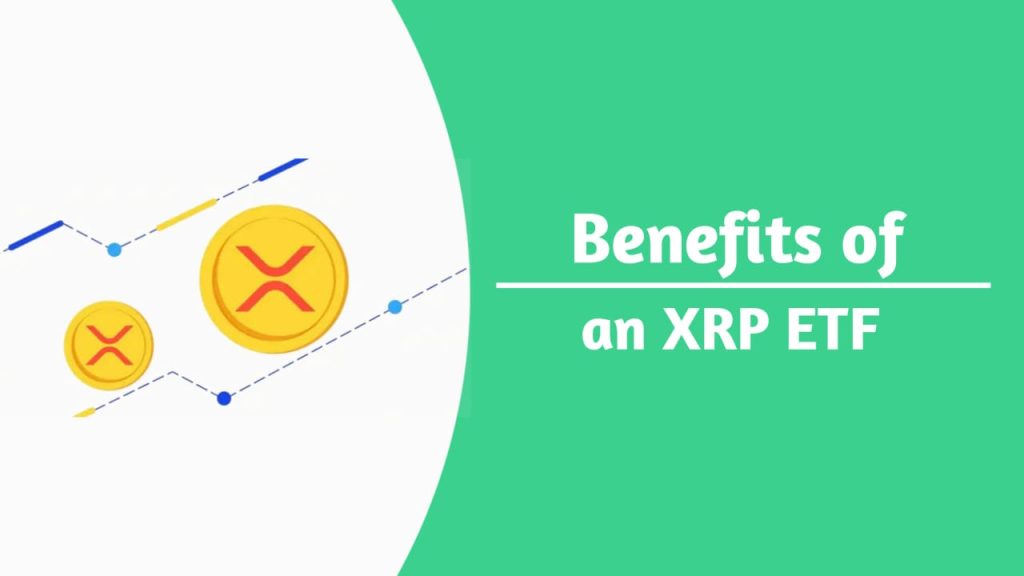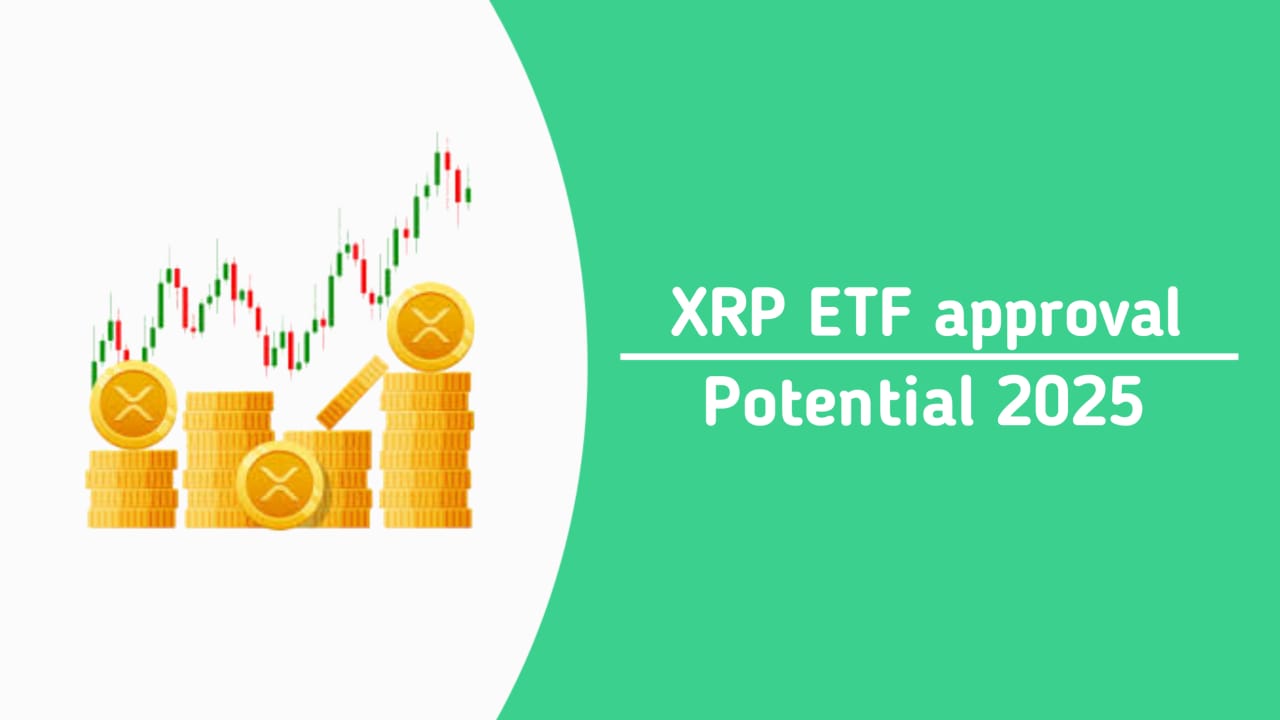Table of Contents
Introduction
The cryptocurrency market has been abuzz with speculation and anticipation surrounding the potential approval of an XRP Exchange-Traded Fund (ETF). As the digital asset landscape continues to evolve, the possibility of an XRP ETF has become a hot topic among investors, traders, and industry experts. In this article, we will delve deep into the XRP ETF approval potential, exploring the factors that could influence its approval, the benefits it could bring to the market, and the challenges it may face.
Understanding XRP and ETFs
What is XRP?
Ripple Labs produced the digital asset known as XRP in 2012. It is designed to facilitate fast, low-cost international payments and is often used by financial institutions to settle cross-border transactions. Unlike Bitcoin, which operates on a decentralized network, XRP is more centralized, with Ripple Labs holding a significant portion of the total supply.
What is an ETF?
An Exchange-Traded Fund (ETF) is a type of investment fund that tracks the performance of a specific asset or group of assets. ETFs are traded on stock exchanges, just like individual stocks, and offer investors exposure to a diversified portfolio of assets without the need to directly own them. In the context of cryptocurrencies, a crypto ETF would allow investors to gain exposure to digital assets like XRP without having to buy and store the underlying coins.
The Current State of Crypto ETFs
As of now, the cryptocurrency market has seen limited success in the approval of ETFs. The first Bitcoin futures ETF was approved in the United States in October 2021, marking a significant milestone for the industry. However, the approval of a spot Bitcoin ETF, which would track the actual price of Bitcoin rather than futures contracts, has yet to be granted.
The approval of a Bitcoin ETF has been seen as a potential catalyst for the broader adoption of cryptocurrencies, and the same could be said for an XRP ETF. However, the regulatory environment surrounding XRP is more complex due to the ongoing legal battle between Ripple Labs and the U.S. Securities and Exchange Commission (SEC).
The Ripple-SEC Lawsuit: A Major Hurdle
The potential approval of an XRP ETF is closely tied to the outcome of the lawsuit between Ripple Labs and the SEC. Ripple Labs was sued by the SEC in December 2020 on the grounds that it sold XRP in an unregistered securities offering. Ripple Labs has vehemently denied these allegations, arguing that XRP is a currency and not a security.
The outcome of this lawsuit could have significant implications for the XRP ETF approval potential. If the court rules in favor of Ripple Labs and determines that XRP is not a security, it could pave the way for the approval of an XRP ETF. On the other hand, if the court rules in favor of the SEC, it could create additional regulatory hurdles for the approval of an XRP ETF.
Factors Influencing XRP ETF Approval
Several factors could influence the approval of an XRP ETF, including regulatory clarity, market demand, and the overall sentiment towards cryptocurrencies.
Regulatory Clarity
One of the most significant barriers to the approval of an XRP ETF is the lack of regulatory clarity surrounding XRP. The SEC’s lawsuit against Ripple Labs has created uncertainty about the legal status of XRP, which has made it difficult for financial institutions and regulators to move forward with an ETF.
If the court rules in favor of Ripple Labs and provides clarity on the legal status of XRP, it could remove a major obstacle to the approval of an XRP ETF. Additionally, if the SEC were to provide clear guidelines on the classification of cryptocurrencies, it could create a more favorable environment for the approval of crypto ETFs in general.
Market Demand
Another important factor that could influence the approval of an XRP ETF is market demand. ETFs are typically created in response to investor demand for exposure to a particular asset or market. If there is significant demand from investors for an XRP ETF, it could increase the likelihood of approval.
The demand for an XRP ETF could be driven by several factors, including the growing adoption of XRP by financial institutions, the increasing popularity of cryptocurrencies, and the potential for XRP to serve as a bridge currency for cross-border payments.
Overall Sentiment Towards Cryptocurrencies
The overall sentiment towards cryptocurrencies could also play a role in the approval of an XRP ETF. If the broader cryptocurrency market continues to gain acceptance and legitimacy, it could create a more favorable environment for the approval of crypto ETFs.
However, if the market experiences significant volatility or regulatory crackdowns, it could create additional challenges for the approval of an XRP ETF. The sentiment towards cryptocurrencies is often influenced by factors such as regulatory developments, market trends, and macroeconomic conditions.
Benefits of an XRP ETF

The approval of an XRP ETF could bring several benefits to the cryptocurrency market, including increased liquidity, greater accessibility, and enhanced legitimacy.
Increased Liquidity
One of the primary benefits of an XRP ETF would be increased liquidity in the XRP market. ETFs are traded on stock exchanges, which are highly liquid markets. This would make it easier for investors to buy and sell XRP, which could lead to increased trading volume and price stability.
Greater Accessibility
An XRP ETF would also make it easier for investors to gain exposure to XRP without having to buy and store the underlying asset. This could attract a broader range of investors, including those who are hesitant to invest directly in cryptocurrencies due to concerns about security and regulatory compliance.
Enhanced Legitimacy
The approval of an XRP ETF could also enhance the legitimacy of XRP and the broader cryptocurrency market. ETFs are regulated investment products, and their approval would signal to investors that XRP is a legitimate asset class. This could lead to increased institutional investment and further adoption of XRP by financial institutions.
Challenges to XRP ETF Approval
While the potential benefits of an XRP ETF are significant, there are also several challenges that could hinder its approval.
Regulatory Uncertainty
As mentioned earlier, the lack of regulatory clarity surrounding XRP is a major hurdle to the approval of an XRP ETF. The outcome of the Ripple-SEC lawsuit will play a crucial role in determining the legal status of XRP, and until there is clarity on this issue, the approval of an XRP ETF remains uncertain.
Market Volatility
The cryptocurrency market is known for its volatility, which could create challenges for the approval of an XRP ETF. Regulators may be hesitant to approve a crypto ETF due to concerns about market manipulation, price volatility, and investor protection.
Competition from Other Cryptocurrencies
XRP faces competition from other cryptocurrencies, such as Bitcoin and Ethereum, which are also vying for ETF approval. If a Bitcoin or Ethereum ETF were to be approved before an XRP ETF, it could divert investor attention and demand away from XRP.
The Road Ahead: What’s Next for XRP ETF Approval?
The path to XRP ETF approval is fraught with challenges, but there are several developments that could influence the outcome.
Ripple-SEC Lawsuit Resolution
The resolution of the Ripple-SEC lawsuit is the most critical factor that will determine the future of an XRP ETF. If the court rules in favor of Ripple Labs and provides clarity on the legal status of XRP, it could open the door for the approval of an XRP ETF. However, if the court rules in favor of the SEC, it could create additional regulatory hurdles and delay the approval process.
Regulatory Developments
Regulatory developments at both the federal and state levels could also influence the approval of an XRP ETF. If regulators provide clear guidelines on the classification of cryptocurrencies and create a more favorable environment for crypto ETFs, it could increase the likelihood of approval.
Market Trends
Market trends, such as the growing adoption of XRP by financial institutions and the increasing popularity of cryptocurrencies, could also play a role in the approval of an XRP ETF. If XRP continues to gain traction as a bridge currency for cross-border payments, it could increase demand for an XRP ETF.
Conclusion: The XRP ETF Approval Potential
The potential approval of an XRP ETF is a topic of great interest and speculation in the cryptocurrency market. While there are significant challenges to overcome, including regulatory uncertainty and market volatility, the benefits of an XRP ETF could be substantial.
Increased liquidity, greater accessibility, and enhanced legitimacy are just a few of the potential benefits that an XRP ETF could bring to the market. However, the outcome of the Ripple-SEC lawsuit and the broader regulatory environment will play a crucial role in determining the future of an XRP ETF.
As the cryptocurrency market continues to evolve, the potential for an XRP ETF remains a key area to watch. Investors, traders, and industry experts will be closely monitoring developments in the Ripple-SEC lawsuit and regulatory landscape, as these factors will ultimately determine the XRP ETF approval potential.
In the meantime, the cryptocurrency market remains a dynamic and rapidly changing space, with new developments and opportunities emerging on a regular basis. Whether or not an XRP ETF is approved in the near future, the potential for growth and innovation in the cryptocurrency market remains strong.
